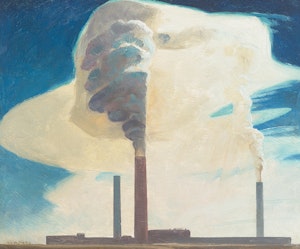Past Auction Highlights
CHARLES FRASER COMFORT
Smokestacks, Copper Cliff
oil on board
signed lower left
10 x 12 ins ( 25.4 x 30.5 cms )
Auction Estimate: $3,000.00 - $5,000.00
Price Realized $33,040.00
Sale date: May 29th 2018
JAMES EDWARD HERVEY MACDONALD
Morning Sunshine, 1926
oil on wood-pulp board
signed, titled and inscribed “Thornhill June 1926” on the reverse; with monogram “JM”, also certified by Thoreau MacDonald on a label
8.5 x 10.5 ins ( 21.6 x 26.7 cms )
Auction Estimate: $50,000.00 - $70,000.00
Price Realized $52,800.00
Sale date: June 8th 2023
MAUD LEWIS
Oxen Hauling Logs in Winter
mixed media on board
signed lower right
11.75 x 14 ins ( 29.8 x 35.6 cms )
Auction Estimate: $12,000.00 - $15,000.00
Price Realized $52,800.00
Sale date: May 31st 2022
The specific item you have requested is not available for viewing at this time.
Now Accepting Consignments
We are currently seeking artworks for inclusion in our upcoming auctions of Canadian art.
Click here to learn about including artwork in upcoming auctions.





